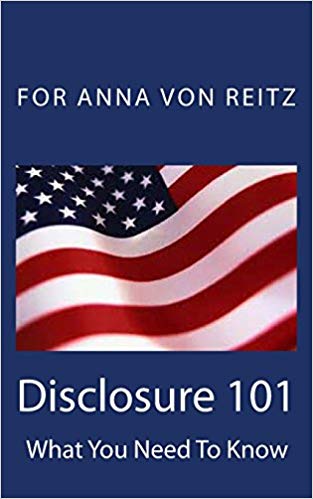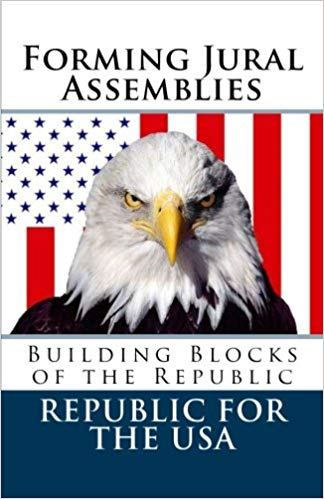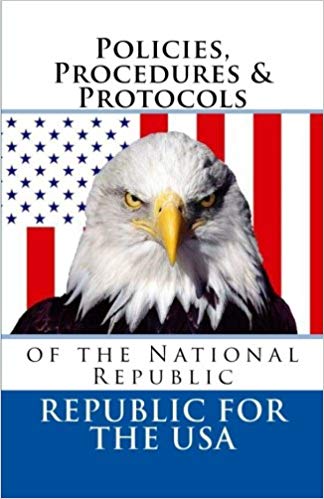|
United States Government Attorneys CONFIRM in sworn affidavits that the Internal Revenue Service (IRS) is NOT an agency of United States Government. ******************************** “The real truth of the matter is, as you and I know, that a financial element in the large centers has owned the government of the U.S. since the days of Andrew Jackson.” — Franklin D. Roosevelt, U.S. President, in a letter written Nov. 21, 1933 to Colonel E. Mandell House. ******************************** Source: http://www.usavsus.info/IRSnotAgencyOfUS.htm The following images are scanned copies of pleadings (affidavits certified by NARA) wherein a United States Attorney and a United States Department of Justice Trial Attorney, Tax Division, deny that Internal Revenue Service is an agency of the United States Government. See specifically page 2 of pleadings, item no. 4. The allegation by Diversified Metal Products, Inc., Plaintiff, for item number 4 reads as follows: “Defendant Internal Revenue Service (IRS) is an agency of the United States government which has presented to Plaintiff a lien against monies to which Defendant Steve Morgan, or presumably [sic] Defendant T-Bow Company Trust for him, may be entitled.” 1.) United States Government Attorneys’ AFFADAVITS stating that the Internal Revenue Service (IRS) is NOT an agency of United States Government. Source: http://www.usavsus.info/IRSnotAgencyOfUS.htm The following images are scanned copies of pleadings (certified by NARA) wherein a United States Attorney and a United States Department of Justice Trial Attorney, Tax Division, deny that Internal Revenue Service is an agency of the United States Government. See specifically page 2 of pleadings, item no. 4. The allegation by Diversified Metal Products, Inc., Plaintiff, for item number 4 reads as follows: (See specifically page 2 of pleadings, item no. 4.) “Defendant Internal Revenue Service (IRS) is an agency of the United States government which has presented to Plaintiff a lien against monies to which Defendant Steve Morgan, or presumably [sic] Defendant T-Bow Company Trust for him, may be entitled.” AND 2.) United States Government Attorneys DENY that Internal Revenue Service is an agency of the United States Government. (page 2 of pleadings, item no. 4.) Source: http://nontaxpayer.net/irsnara0.html The following images are scanned copies of pleadings (certified by NARA) wherein a United States Attorney and a United States Department of Justice Trial Attorney, Tax Division, DENY that Internal Revenue Service is an agency of the United States Government. ————————– A Comment The United States Government was created by the Constitution to conduct certain affairs of the People of the several States. To conduct these affairs, Congress created various offices, departments, and agencies pursuant to its constitutional authority at Article 1 § 8(18). Where the laying and collecting of Article 1 § 8 taxes were concerned, Congress created the Treasury Department with various offices with one of those offices being collector of internal revenue. Collectors were officers of the United States, who were appointed by the President with the advice and consent of the Senate. One collector was to be appointed to each internal revenue district, which was designated by the President. The office of collector of internal revenue was a public office. Collectors exercised the sovereign authority of the United States in the enforcement of the internal revenue laws and the collection of taxes. They could sue or be sued in the name of the United States. In order for Congress to collect taxes pursuant to Article 1 § 8, collectors of internal revenue are required within internal revenue districts within the several States. All collectors of internal revenue were fired by the President in 1952 and their duties were assigned to personnel with the Bureau of Internal Revenue. The details of these actions are set out in Reorganization Plan No. 1 of 1952. What few Americans know or understand is that Congress has an implied constitutional authority to lay and collect taxes that has nothing to do with Article 1 § 8(1). That constitutional authority is Article 4 § 3(2). Congress exercises its legislative jurisdiction over large areas of land (federal territories – a “territory”) within the United States (Washington, D.C., various military installations, State land ceded as parks, Post Offices, federal buildings, etc. which the various States have been expressly permanently ceded to the United States government and also over a number insular possessions, e.g., Puerto Rico, Guam, Virgin Islands, etc. – collectively called the “Federal Zone”. In short, the “Federal Zone” ONLY is called the “United States” (a municipal corporation); and Congress can legislate “federal statutes” solely for the “Federal Zone” – called the “United States”) , which includes ONLY Washington, D.C., various military installations, State land ceded as parks, Post Offices, federal buildings, etc. which the various States have been expressly permanently ceded to the United States (the municipal corporation); plus insular possessions, e.g., Puerto Rico, Guam, Virgin Islands, etc. — NOT the various States or the people in those States which, as sovereigns in relation to the United States, exercise “exclusive jurisdiction over themselves their own States. Therefore, the statutes (acts or “laws”) enacted by Congress apply ONLY to the “Federal Zone” called the “United States” – NOT to the sovereign people within the various States or to the sovereign States themselves. Within these areas, Congress can act in the capacity of a state legislature as well as a national legislature. Congress can lay and collect taxes within these areas under its legislative jurisdiction just as States do in areas under their legislative jurisdictions. Taxes laid pursuant to Article 4 § 3(2) are not required to be collected pursuant to the demands of Article 1 § 8(18). Congress is not required to use collectors of internal revenue for those taxes. As a matter of fact, Congress can use any organization it desires to collect taxes laid pursuant to its constitutional authority at Article 4 § 3(2). The Bureau of Internal Revenue/Internal Revenue Service was never created by Congress. Congress empowered the Secretary of the Treasury to collect taxes laid pursuant to Article 4 § 3(2) and the Secretary created the BIR/IRS. The Secretary of the Treasury can even use private collection agencies to collect internal revenue taxes laid pursuant to Article 4 § 3(2) if he so chooses. The Constitution empowers Congress to make all needful rules and regulations for its territory (the “Federal Zone”) and other property and is otherwise silent as to how Congress conducts its business within these areas. The Internal Revenue Service has been defined by statute to be a Federal agency and is administering the internal revenue laws that have been passed pursuant to Congress’ Art. 4 § 3(2) authority over its territory and other property over which Congress has “exclusive jurisdiction” (which does NOT include the various States). The Federal income tax, Social Security, and all other taxes administered by the Internal Revenue Service are being laid and collected under Congress’ Article 4 § 3(2) authority. This is the great secret and fraud underlying the Federal income tax. Why the Citizens of the Several States Are Not Generally Liable for the Federal Income Tax is required reading. See Image eight (8) images below for the U.S. Government’s Official Response to the Court Why the Citizens of the Several States Are Not Generally Liable for the Federal Income Tax is required reading. Click To See Image eight (8) images Learn More About |
New Human
New Earth Communities Solutions - Actions - Remedies 
Monthly Support Option
Unsubscribe at Anytime One Time Tip
You Choose the Amount The American States Assemblies
|
- New Human New Earth Communities
- Member Q & A Contact
- Reader Supported Truth
- NHNEC Shoppe
- Follow Us On Wordpress
- Natural Law Trust Protect Your Assets
- VITALITY HEALTH & LEGAL FUNDING
- How To Win In Court
- Solutions, Actions, Remedies
- Anna von Reitz-Restoring Lawful Government
- The American States Assemblies
- Private Registered Bond
- Mortgage Foreclosure Solutions
- Awake Great Reset Tools
- Un Agenda 21 + 2030 + 2050
- Updates Unveiling The Agendas
- What Was Hidden is Revealed
- Awake Medical Community
- AWAKE SELF CARE
- End the Fraud
- Peggy Hall - The Healthy American
- Mark Emery - Exit Babylon - Lighthouse Law Club
- 5G - Cell Tower Microwave Weapons
- REAL SHUNGITE EMF - 5G Protection
- SMART METER COVERS & EMF PROTECTION DEVICES
- The AI Organization
- Aliens Among Us
- Energetic Parasite Removal Aids
- Manna World Holding Trust Report
- CESTUI QUE VIE ACT 1666 – EXISTENCE OF LIFE
- Alternative Media
- Declaration of Freedom for All
- Blog Roll
- Unlawful Mask & Vaccine Mandates
- Way Maker - Worship
- The Earth Constitution Institute
- Preparedness Resources
- Food Security
- Control Your Data
- CRITICAL THINKER ACADEMY
- Earth Energy - God's Creation



 RSS Feed
RSS Feed








